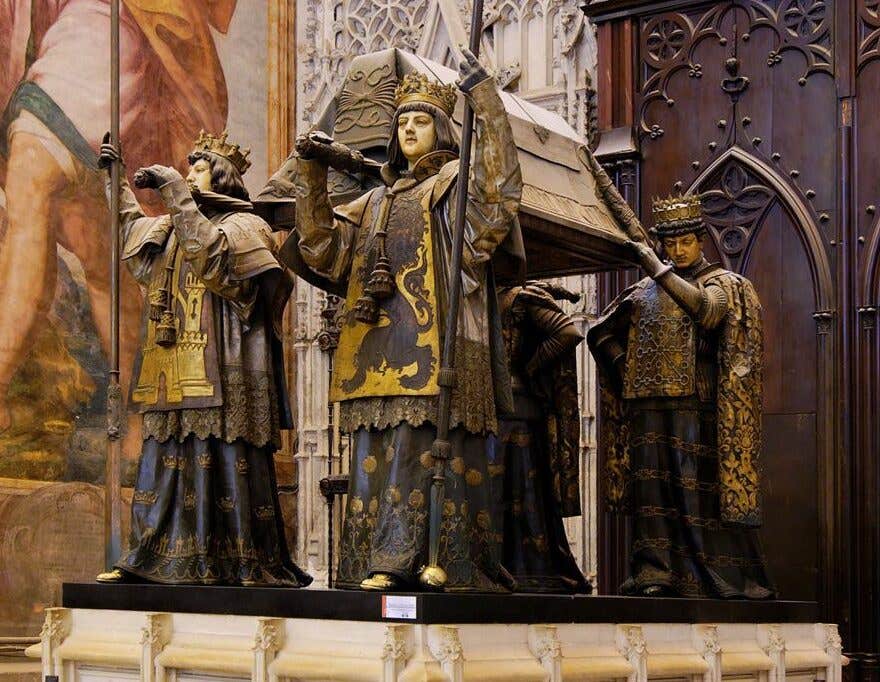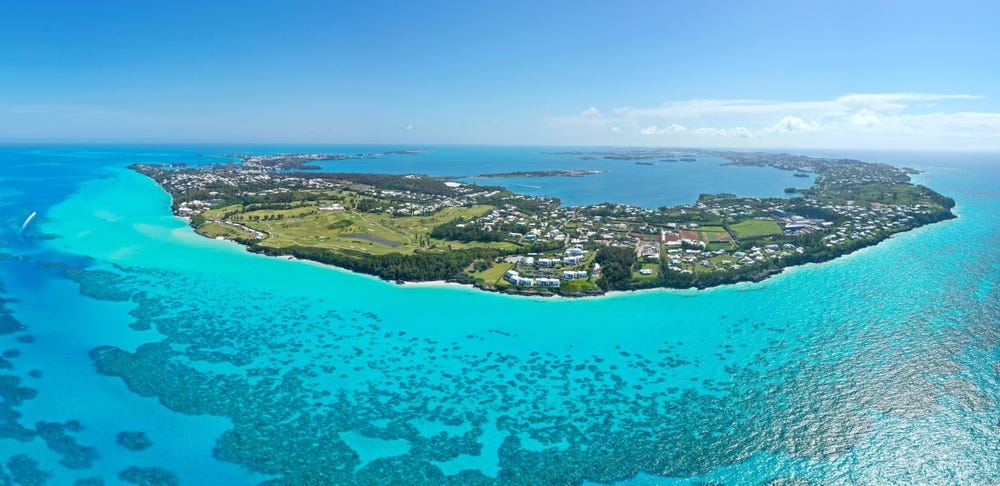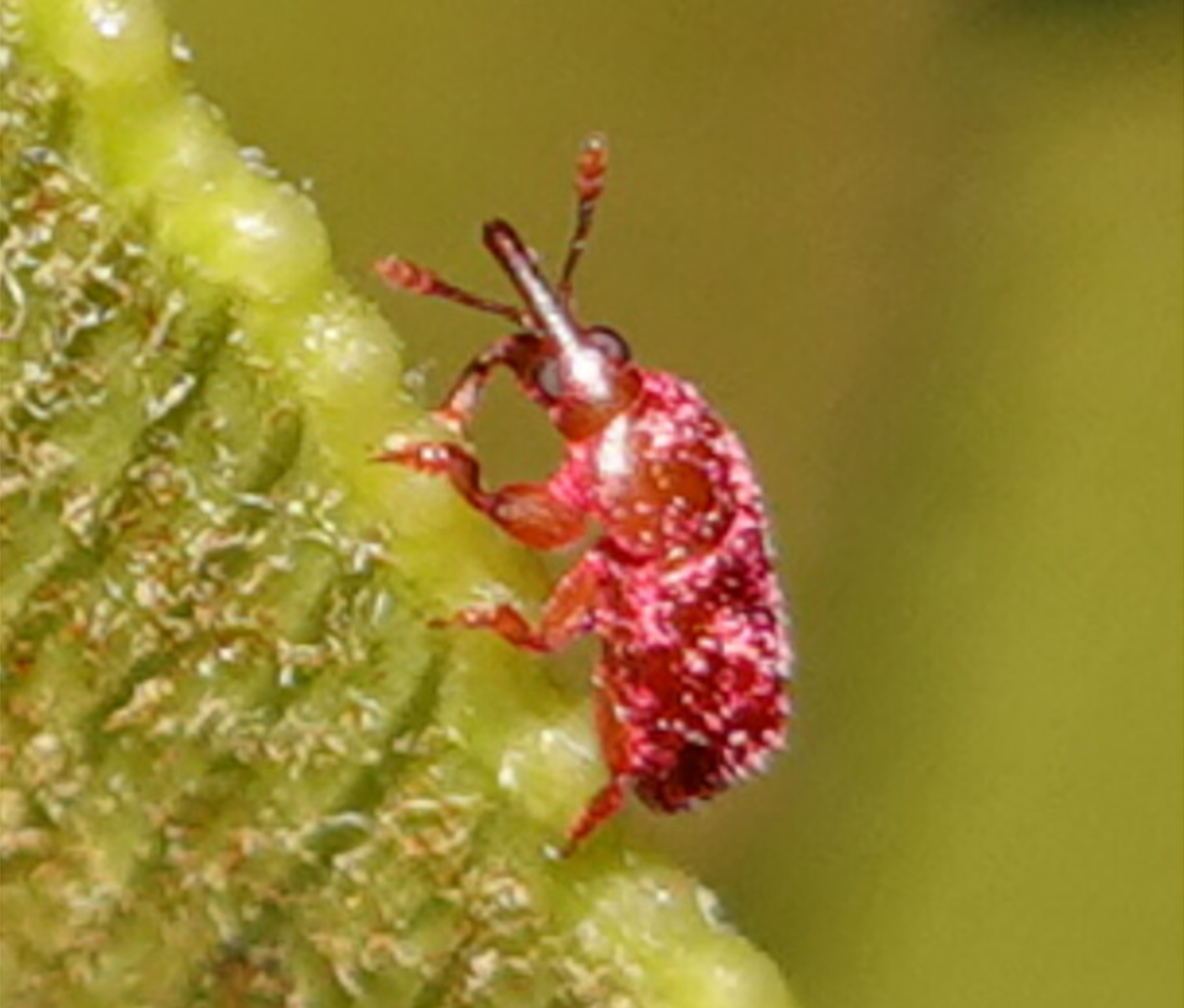Researchers solve the mystery of Christopher Columbus’s ethnicity and burial site location
Columbus’ transformative impact on the Americas is undisputed, yet questions about his final resting place have persisted for generations

The final resting place of Christopher Columbus at the Seville Cathedral. (CREDIT: CC BY-SA 4.0)
Centuries after his death, Christopher Columbus continues to stir fascination and fierce debate. His historic Atlantic crossings in 1492 are famous worldwide, but his legacy remains deeply tangled in controversy.
While Columbus’ impact on the Americas is beyond dispute, questions about his true origins and the final resting place of his remains have haunted historians. Now, a team of Spanish researchers believes they have finally cracked both mysteries using decades of careful DNA study.
Columbus is widely credited with opening the door to European colonization, yet much of his biography is murky. Though tradition claims he hailed from Genoa, some experts have suggested Portuguese, Basque, or Jewish roots. The mystery of his remains has proven just as stubborn.
After dying in Valladolid, Spain, in 1506, Columbus’ burial became a journey almost as complex as his life. His death passed quietly, but the posthumous travels of his bones would fuel centuries of intrigue.
First laid to rest in Spain, his remains were later moved to Santo Domingo, then to Havana, and finally back to Seville. Today, they rest in a majestic cathedral. However, bones found in the Dominican Republic, also believed to be his, have added layers of doubt.
Leading the charge to settle the matter, José Antonio Lorente, a forensic scientist at the University of Granada, turned to modern DNA tools. His team compared samples from Columbus’ brother Diego and his son Fernando to those housed in Seville’s Cathedral.
"Today, thanks to new technology, the previous partial theory that the remains in Seville are those of Christopher Columbus has been definitively confirmed," Lorente said.
Despite confirming Seville’s claim, some uncertainty lingers. A lead box uncovered in 1877 in Santo Domingo’s Cathedral, marked with Columbus’ name, held bone fragments. Lorente suggests that since both skeletons are incomplete, both could, in fact, belong to the famed explorer.
Related Stories
The findings of a recent study were announced in a documentary titled Columbus DNA: The True Origin, which aired on Spain's national broadcaster, TVE.
As for Columbus's ethnicity, "We have DNA from Christopher Columbus, very partial, but sufficient. We have DNA from Hernando Colón, his son," explained Lorente in the program. "And both in the Y chromosome (male) and the mitochondrial DNA (passed through the mother) of Hernando, there are traits compatible with Jewish origin."
Before Catholic monarchs Isabella and Ferdinand ordered Jews and Muslims to either convert to Catholicism or leave Spain, about 300,000 Jews lived in the country. Many of them later resettled across the world, and the word Sephardic originates from "Sefarad," the Hebrew term for Spain.
Lorente noted that after evaluating 25 possible locations, they could only confirm that Columbus was born in Western Europe.
These discoveries come after two decades of painstaking research. Yet, despite the scientific rigor behind the DNA studies, the findings have been packaged into a television special. While such commercialization might detract from the gravity of the discoveries for some, the research itself represents an important milestone in solving the enigma of Columbus.
As Spain celebrates its national holiday, marking Columbus’ arrival in the Americas, the country will also be tuning in to a program that promises to finally reveal the explorer’s true origins. Theories about his background have abounded for years. Was he really Italian, or could he have hailed from another European country?
The program’s creators insist they’ve found the answer, and they claim that, out of 25 possible origins, eight finalists were considered before concluding the true birthplace of the famed explorer.
Lorente, however, remains cautious. While he has suggested in the past that Columbus was indeed Genoese, he has held back on definitive statements, noting that the research could lead to findings valuable for historical analysis. “There are some really important results – results that will help us in multiple studies and analyses that should be evaluated by historians,” he remarked in a press conference.
Columbus’ legacy, much like his remains, has been scattered and debated. While many in the U.S. grew up hearing the phrase “Columbus discovered America,” this narrative has become increasingly controversial. Columbus never set foot on the mainland of what is now the United States. His expeditions primarily brought him to the Caribbean and Central and South America.
Furthermore, the impact of his voyages on the indigenous peoples of the Americas was catastrophic, leading to centuries of colonization, exploitation, and genocide.
In recent years, his legacy has been reexamined, with public figures, particularly in Spain and the U.S., denouncing the celebratory tone that often surrounds Columbus. In 2015, Ada Colau, the then-mayor of Barcelona, openly criticized Spain’s national day, stating, “Shame that a nation celebrates a genocide and, on top of that, with a military parade that costs 800,000 euros.”
Her sentiments were echoed by José María González Santos, the mayor of Cádiz, who said, “We never discovered America, we massacred and suppressed a continent and its cultures in the name of God.”
This reevaluation of Columbus’ legacy has sparked heated debates, particularly in the U.S., where statues of Columbus have become flashpoints for protests. In 2020, a statue of the explorer in Richmond, Virginia, was toppled, set on fire, and thrown into a lake. A sign left at the scene read, “Columbus represents genocide.”
For centuries, Columbus was celebrated as a heroic figure who opened new horizons for Europe, but today his legacy is one of conflict and division.
As more is learned about the true nature of his voyages and their devastating consequences for indigenous peoples, his reputation continues to shift. And with the questions of his origins and resting place seemingly answered by modern science, perhaps new light can be shed on the man who changed the world.
Note: Materials provided above by The Brighter Side of News. Content may be edited for style and length.
Like these kind of feel good stories? Get The Brighter Side of News' newsletter.



